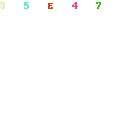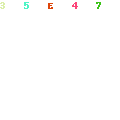I don’t like the term "self-publishing."
Cloud-Publishing
In the emerging world of "cloud-publishing," it’s meaningless, and does not reflect what’s coming, what we’re already seeing signs of. Cloud-publishing — what we’re doing at Book Oven — is providing a toolset, on the web, to publish books; a publishing model native to the web, with all the benefits:
- instantaneous global distribution
- simple, web-based collaboration (editing, proofreading, design)
- networks of creators and collaborators (new and existing)
networks of readers (new and existing)
How book creation gets organized in such a model will vary greatly, from the lonely writer, to a small press wishing to focus on content & not technology, to collections of colleagues and friends, to professional associations, collections of strangers aligned by topical interest, or financial interest, or just aligned in the interest of making books.
The key here is: cloud-publishing (and Book Oven) will provide the tools to allow groups of people to easily coalesce around the production, distribution and sale of a particular book or books. How those groups organize themselves will look different from book to book. But Book Oven’s tools will mean that book makers can focus on the important thing, the content, and not worry about the technical hurdles of making, printing & distributing books.
What’s Wrong with the Status Quo?
Others of course, will prefer the current model, and that is wonderful and excellent and good. I love publishers, and books, and book stores, and libraries, and they have brought me great joy over the years.
But the web offers new, parallel ways to make books, not necessarily better, but more flexible, more easily global, more connected.
That’s the larger movement afoot. And if all goes well, Book Oven will be a big part of this movement.
Self-Publishing Doesn’t Cut It
So "self-publishing" doesn’t cut it as a description of what we’re building at Book Oven. It’s too limiting, and doesn’t get anywhere near the vision we have of a new, parallel, model for publishing as a whole.
As the availability of web-based tools for making books grows, the distinction will be between what you might call "corporate publishing" — blockbuster, and top-end publishing; commercial textbook production, etc. — and the rest of us. The rest of us are "independent": the smaller presses, groupings of people who put craft and time into making something with various motivations, and yes, individual writers. That doesn’t mean there won’t be money on the independent side, but the structures around the businesses will be very different than on the blockbuster side.
We’re All Indie Now, or None of Us Is
Though as Richard Nash suggests, we’re all indie now (except the big guys), so even the term indie doesn’t mean much:
So now the phase of indie is over, now that the monopoly on the production and distribution of knowledge, culture and opinion has been broken, what next, a new phase, a drive to, perhaps, create, maintain, defend a New Authenticity arises?—Ah, am I opening myself up for derision with that…? Never mind, I toss it up there, a wounded duck. Power will try to hide behind the people, let’s use a new authenticity to stop them. [more…]
Bloggers Suck, Right? And Amateur Talkers?
But back to "self-publishing": once upon a time, it conjured in some people’s minds a negative slew of adjectives: Bad. Sub-par. Not selected.
Deserved or not, that’s how many react to the term.
They said the same thing about blogging in the old days, and yet I can (and do) now find 10 times as much wonderful, thoughtful, well-written content from blogs than I do from professional outlets. Every time I hear people claim that blogging is "bad" (amazingly, you still hear that), I roll my eyes. As I said to Henry Baum: you might as well complain about bad "talkers." Some talkers are wonderful. Others insufferable. Some of the worst "talkers" are paid lots of money to talk; some of the best are friends of mine and they do it for free. So you would never consider complaining about "talking" as a method of communicating, just because lots of people talk nonsense. You assume that is the case, and seek out the good talkers. So on the web with bloggers, and music, and indeed, books.
Talking is just a means of transmission of words and ideas.
But for whatever reason, it’s hard for people to think of distributing text in the same way that they think of distributing verbal words. While talking might be free, distributing text, audio, video has only recently become (effectively) free. And just as the world is getting used to blogging, and maybe podcasting, along comes this idea that books can be distributed essentially for free. Think about what happened with blogging: suddenly, the means of transmission of text – to a global audience – became free. When the cost restrictions on producing written text disappeared, so did the power of the established system to decide what was worth printing and what wasn’t. And people did what they are wont to do when systems blocking them disappear: they started publishing text like crazy on the web. That made people very uncomfortable. It meant lots of "bad" writers were publishing their text for global consumption. But more importantly, it meant that we saw a beautiful flourishing of great writing that no one had bothered printing before – the topic was too narrow, the audience too dispersed, the return on investment too low. It turns out that the calculations about what’s "worth" publishing is very different when the cost of publishing approaches zero. And that means that now, if you have an internet connection, you can read just about anything produced anywhere in the world. Lutes and Violins? Bespoke tailoring? Goats? You got it.
In the end though, blogging is just a means of transmission of words. And it turns out that there were millions of people willing to write excellent stuff that for whatever reason the traditional media set up did not, or could not publish.
We expect to see something similar with cloud-publishing.
[We’ve had easy access to the tools of publishing for a while, see for instance Lulu. But the most important shift we’re about to see, I think, is the network of readers and writers and book makers. I’ll write more about this later].
Good Books vs. Bad Books
Now, I can guarantee something. As the ability to publish books gets easier, we’ll have more "bad" books than you can shake a stick at. (In fact, we probably already do, published, unpublished, self-published…).
But the lines of distinction will not be, as they were previously, between traditional publishing and self-publishing, but rather just between good books and bad books (with caveats about eyes of beholders etc).
We’ll have corporate publishers making good books, and independents making more good books. And everyone will make lots of bad books too. But how independents organize themselves will change greatly too.
Publishers and the Web
Fact 1: many corporate publishers are having a hard time coming to terms with the web. It’s going to get harder for them – they already are having trouble sustaining their cost structures, and have off-loaded much of the work around the web to their authors.
Fact 2: The web has a wonderful ability to allow people to sort through huge piles of information, and seek, rank and share gems.
Opinion 1: People will find more new writing on the web; so "book publishers" must start to be native to the web, and see the web as integral to their task of connecting readers and writers; they cannot continue to see the web as some kind of add-on to their marketing departments.
Opinion 2: Big corporate publishers will have trouble with Opinion 1; so new publishing models need to emerge.
Nothing Is New Under the Sun
We’ve seen this in music and blogs/newspapers and encyclopedia, where the web, and cheap tools of production have spawned an explosion of creative activity, excellence, choice, and a toiling mass of music and writing of all shapes and sizes (along with lots of dreck, but that’s a side effect of all the great stuff).
We think the same is going to happen for books. With a global audience hungry for content, and cheap easy tools for creation and distribution, and a growing network of creators and readers connected on the web and an explosion of devices that allow people to be reading at times and in places they never did before, the distinctions about where or how books were made will fall away.
Do I Want to Read It?
All that will matter are these two questions:
1. is it any good?
and
2. do I want to read it?
And so "self-publishing" is a term that should be retired.
[Cross-posted at the Book Oven Blog and elsewhere …]




